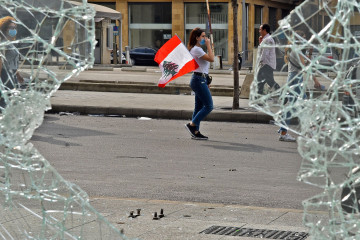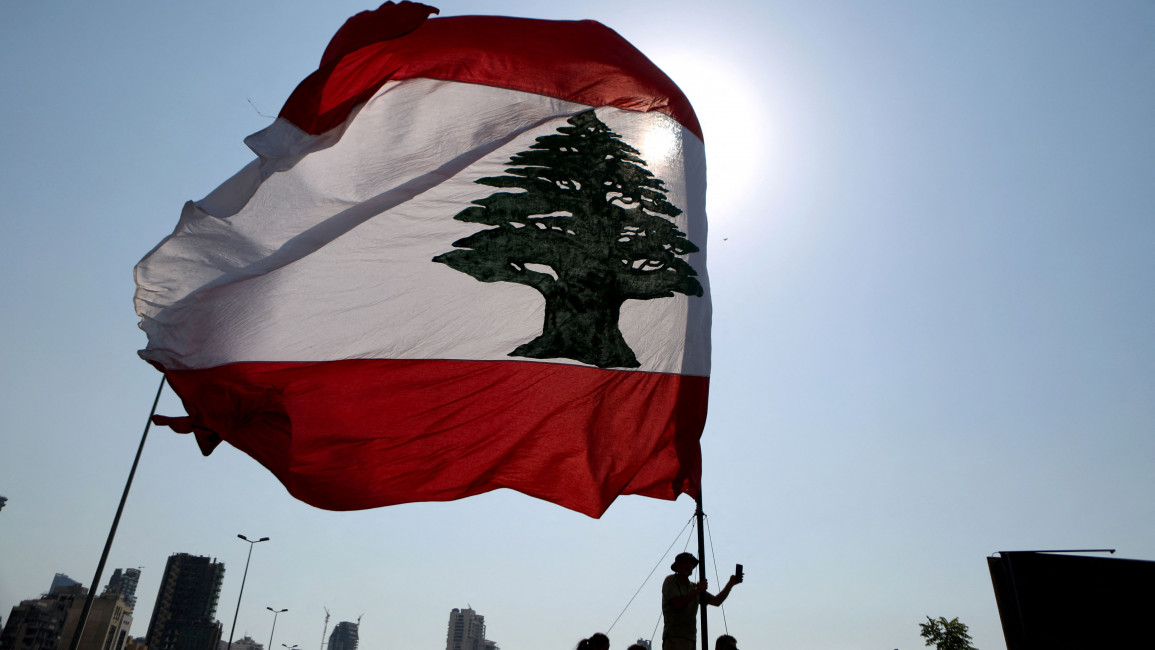

It has been nearly eight months since the presidential vacuum began in Lebanon, with 12 parliamentary voting sessions held so far and still no end in sight for a political stalemate that is halting much-needed socio-economic reforms in a country grappling with an unprecedented financial crisis.
Regional and international attempts at mediation have not yet been able to overcome internal divisions among the Lebanese political class.
France recently recognised that its approach to meditation efforts has not been effective. L’Elysée has appointed former foreign minister Jean-Yves Le Drian as French envoy to Lebanon, and he visited Beirut on 21 June.
For the past few months, France has endorsed a deal that would bring former minister Suleiman Frangieh to the presidency and Nawaf Salam to the premiership, in addition to several key appointments, most notably a new Central Bank governor.
"It has been nearly eight months since the presidential vacuum began, with 12 parliamentary voting sessions held so far and still no end in sight for a political stalemate that is halting much-needed socio-economic reforms"
This echoes the 2016 presidential deal that brought Michel Aoun to the presidency and Saad Hariri to the premiership. This deal, however, does not enjoy widespread support. In Lebanese politics, Hezbollah and Amal are the primary supporters of Frangieh while Saudi Arabia does not seem enthusiastic about the deal, considering it had not approved its replica in 2016.
The internal challenge to this deal is that the main parliamentary blocs have not endorsed Frangieh’s candidacy and have sought an alternative.
Each for their own interests, the Free Patriotic Movement (FPM), the Lebanese Forces, the Progressive Socialist Party, the Kataeb Party, and some of the “change” parliamentary bloc deputies have coalesced around the candidacy of former finance minister Jihad Azour, who suspended his duties as the IMF Director of the Middle East and Central Asia department to focus on his candidacy for the Lebanese presidency.
This intersection of interests represents a fragile front among those who merely share their rejection of Frangieh. The FPM has diverged with its ally Hezbollah on this issue, which leaves Frangieh with a solid 51 votes, unable to win without defection from the opposing camp that is currently endorsing Azour. Candidates need 86 votes to win in the first round and 65 votes in the second round in a parliament of 128 deputies.
Other figures could also become contenders. Army Chief General Joseph Aoun’s name continues to be raised, however, there are some hurdles for his candidacy. As army chief, officialising his candidacy requires a two-thirds majority vote in the parliament to amend the constitution and so far Hezbollah, Amal, and the FPM leadership are not endorsing him.
Lebanese media has reported that Qatar and Egypt have a preference for General Joseph Aoun, which is widely believed to echo the US position. General Joseph Aoun’s retirement from the army takes effect in January 2024. FPM leader Gebran Bassil has publicly criticised him, which led to a backlash among FPM members who are sympathetic to Joseph Aoun.
|
|
Meanwhile, the five-way committee (US, France, Saudi Arabia, Qatar, and Egypt) has been the main international platform that discusses developments in Lebanon on a regular basis. France has recently proposed to add Iran to this committee, but Paris is alone playing a proactive role in Lebanon.
The last visit by the French envoy reflected a French attempt to rectify its image as endorsing Hezbollah’s candidate rather than offering a meaningful initiative. There are suggestions that the French initiative could potentially organise a dialogue in the coming weeks between the main parliamentary blocs that elect the President.
The French approach is guided by two streams of thought; firstly, a recognition that Hezbollah has de facto control over Lebanon, which was proven wrong by the fragile coalition that rallied around Azour, and secondly, that the group’s political and economic interests in Lebanon be preserved under the new presidency. The French role is key as a facilitator given its ability to engage all actors in Lebanese politics and the major powers with influence in Lebanon.
Washington has mostly withdrawn from the presidential election portfolio and has delegated that role to France. Saudi Arabia seems largely disinterested; Lebanon has not been a Saudi priority in the past few years. The Saudi mantra has been that any restoration of Saudi funding to Lebanon is tied to scaling down Hezbollah’s influence in the Lebanese government, which Hezbollah is not willing to do.
"Washington has mostly withdrawn from the presidential election portfolio and has delegated that role to France. Saudi Arabia seems largely disinterested"
The gradual Saudi withdrawal from Lebanon since 2016 has had an impact on Riyad’s leverage in Lebanon, and Hariri’s withdrawal from the political scene deprived Saudi Arabia of having a significant voting bloc in the Lebanese parliament. The Saudi-Iranian rapprochement has had an impact on their bilateral relationship, however, beyond Yementhere has been little regional impact.
For the US, Lebanon is also not as much of a priority as it was during the US maritime deal between Lebanon and Israel, when Washington threw its weight behind the deal to get it over the line. Ultimately, the US can deal with any emerging consensus candidate. Iran gives Hezbollah a large margin to manoeuvre within Lebanese politics but can also play a role in facilitating a deal when needed or if it serves its interests.
If those opposed to Frangieh’s candidacy continue to endorse Azour, and if a second round is held in the next electoral session, he will need about six votes to ensure his election (he received 59 votes last time).
The parliamentary bloc that could help Azour win is the Independent Parliamentary Assembly, the closest to former Prime Minister Saad Hariri. This bloc did not vote for Azour in the last session, but the pressure is growing on it to make up its mind when the next electoral session is held.
However, given the consensual nature of the Lebanese system, it will be difficult to elect a president without the consent of Hezbollah and Amal, who hold all the Shia seats in the parliament, and it might also be difficult to elect a president without the consent of the major political groups representing the Christian community.
Hence, Hezbollah and Amal will most likely continue to deny the quorum in the second round of voting despite internal and external pressure on them to allow the voting to proceed. This is the current predicament of the Lebanese presidential election.
Lebanese politicians continue to look for external indications which could define the presidential election, first the Saudi-Iranian rapprochement and now a potential US-Iran nuclear deal, instead of directly addressing their own divisions without international mediation.
Meanwhile, a consensus candidate has yet to emerge. Lebanese politics remain in the phase of convincing Hezbollah to give up on Frangieh, and unless that is achieved it will be challenging to overcome the current deadlock.
Joe Macaron is an independent consultant and research analyst primarily focusing on US strategy, conflict analysis, and international relations in the Middle East. His previous roles include the Combating Terrorism Center at West Point and the Colin Powell Center for Policy Studies.
A former journalist, he also advised the International Monetary Fund on public engagement in the Middle East and served in different capacities in the United Nations system. He contributes his analysis widely to international print, online, and broadcast media.
Follow him on Twitter: @macaronjoe





 Follow the Middle East's top stories in English at The New Arab on Google News
Follow the Middle East's top stories in English at The New Arab on Google News


